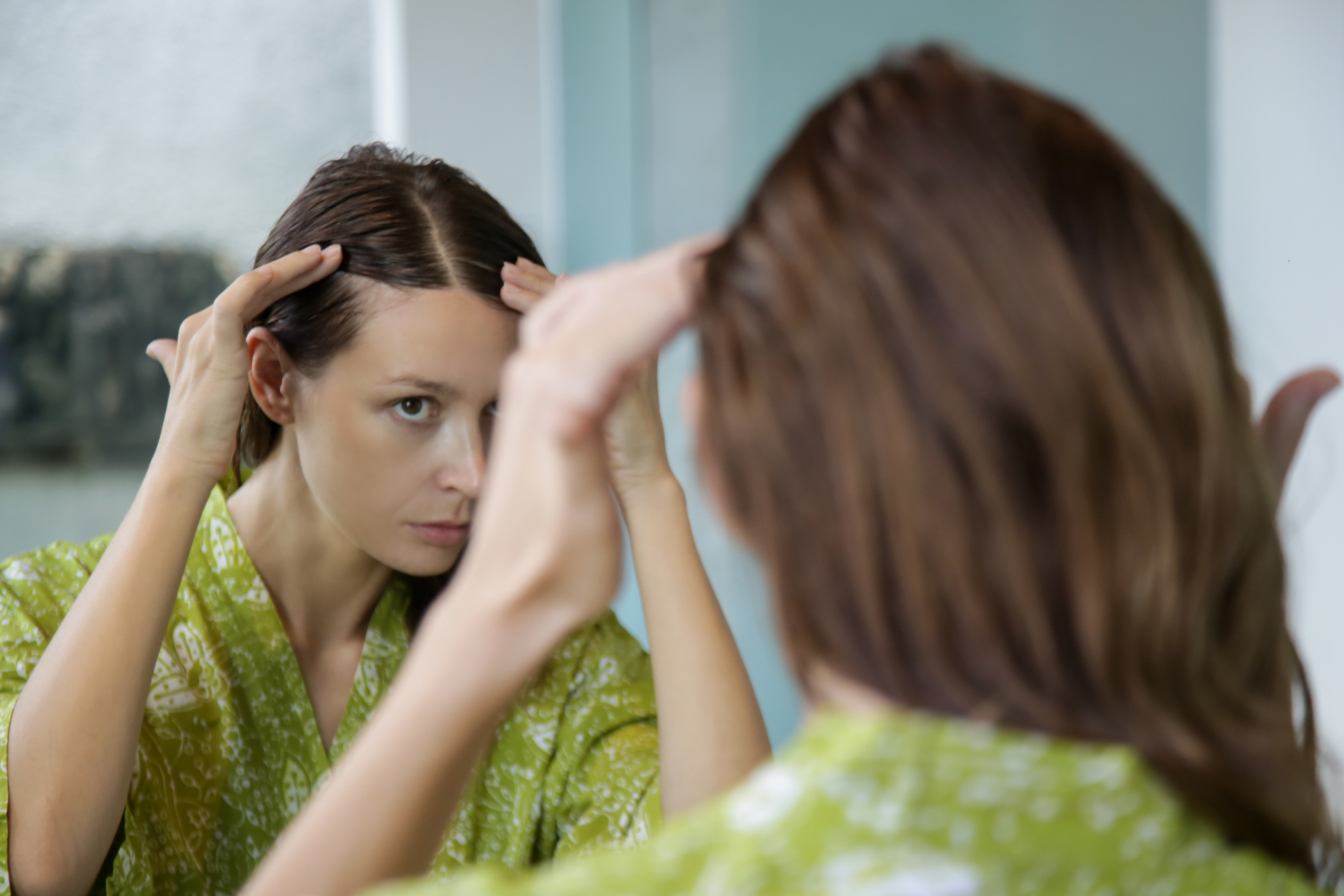Get Easy Health Digest™ in your inbox and don’t miss a thing when you subscribe today. Plus, get the free bonus report, Mother Nature’s Tips, Tricks and Remedies for Cholesterol, Blood Pressure & Blood Sugar as my way of saying welcome to the community!
Can stress really make your hair fall out?

A little hair loss is natural — we lose about 50 to 100 hairs from our heads every day as part of the normal hair growth and turnover cycle. If you’re losing far more than that, there could be a number of factors involved, including diet, medication, hormonal issues and stress.
Some people say stress makes them pull their hair out — while others claim it makes their hair fall out. But can you really lose your hair over stress?
Some researchers believe that the inflammation caused by chronic stress can cause the kind of hormonal imbalances that lead to hair loss. But the biological link between chronic stress and excessive hair loss has not been completely clear — until now…
What causes hair follicles to go dormant
A Harvard University study has identified a major stress hormone that puts hair follicle stem cells into what researchers call an “extended resting phase,” during which they do not regenerate the follicle or the hair. The researchers zeroed in on the specific cell type and molecule in charge of relaying the stress signal to the hair follicle stem cells and showed how the pathway can be potentially targeted to restore hair growth.
Ya-Chieh Hsu, a Harvard professor and senior author of the study, says his lab has the goal of understanding how stress affects stem cell and tissue biology, fueled in part by stories people have shared about what stress does to their skin and hair.
“I realized that as a skin stem cell biologist, I could not provide a satisfying answer regarding if stress indeed has an impact — and more importantly, if yes, what are the mechanisms,” Hsu says. “The skin offers a tractable and accessible system to study this important problem in depth, and in this work, we found that stress does actually delay stem cell activation and fundamentally changes how frequently hair follicle stem cells regenerate tissues.”
The hair follicle is one of the few tissues in mammals that regenerates throughout our lives, naturally cycling between growth and rest thanks to hair follicle stem cells. These stem cells become activated during the growth phase to regenerate the follicle and hair, and dormant during the resting phase, when hairs shed more easily. Hair loss can occur if the hairs fall out and the stem cells remain in the resting phase without regenerating new tissue.
In a mouse model of chronic stress, researchers found hair follicle stem cells stayed in a resting phase for an extended time without regenerating tissues. Chronic stress makes cells much more sensitive to corticosterone, a major stress hormone produced by the adrenal glands, so giving mice corticosterone reproduced the stress effect on the stem cells. Cortisol, often referred to as the “stress hormone,” is the equivalent hormone in humans.
Under normal conditions the resting phase for hair follicles becomes longer as animals age. But when the researchers removed the stress hormones, the stem cell resting phase was significantly shortened, and even old mice constantly entered the growth phase to regenerate hair follicles throughout their lives.
“So even the baseline level of stress hormone that’s normally circulating in the body is an important regulator of the resting phase,” Hsu says. “Stress essentially just elevates this preexisting ‘adrenal gland–hair follicle axis,’ making it even more difficult for hair follicle stem cells to enter the growth phase to regenerate new hair follicles.”
Slowing down the stress train
The best way to combat stress-related hair loss is to get rid of the stress. Given the circumstances under which we’re all living today, it may not be possible to completely erase stress from your life. But there are some steps you can take to lower your stress levels and potentially slow or stop that hair loss…
Supplement with stress-reducing nutrition. Adding 250 mg to 400 mg of the amino acid L-theanine to your diet can help lower cortisol and reduce stress. If you add turmeric to that, you’ve really got an anti-stress combo going on. Turmeric has been shown to lower stress and elevate neurotransmitters such as serotonin — the feel-good hormone.
Try yoga or tai chi. Both of these practices involve gentle movement and have been proven to reduce stress. They also boost circulation, which can help encourage hair growth.
Take a breath. If you don’t have a lot of time, taking five minutes for some mindful breathing can really help relieve stress and boost your mood and focus. Make sure you’re comfortable and close your eyes. Then, focus on breathing and out. Try not to think about anything but your breath. If your mind does wander, gently bring it back to your breathing.
Editor’s note: Did you know that when you take your body from acid to alkaline you can boost your energy, lose weight, soothe digestion, avoid illness and achieve wellness? Click here to discover The Alkaline Secret to Ultimate Vitality and revive your life today!
Sources:
How chronic stress leads to hair loss — The Harvard Gazette
Getting To The ‘Root’ Of Hair Loss—And Regrowth — Easy Health Options
Give me a break — American Psychological Association
5 Ways Stress Damages Your Body And How To Beat It — Easy Health Options













